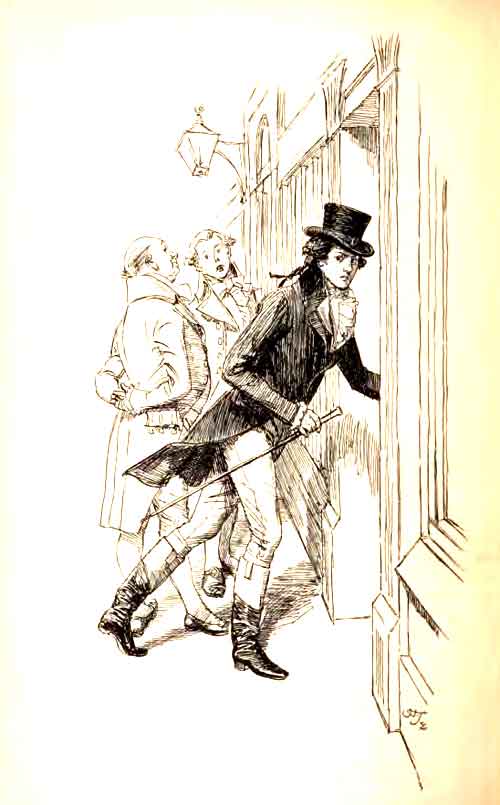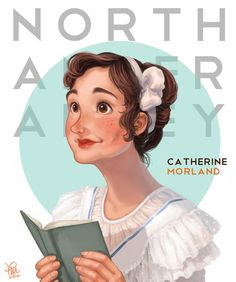Sense & Sensibility, chapter 45: Pro vs. Anti Redux
We’ve had a week to process Willoughby’s dramatic monologue and its many implications, but it doesn’t seem like enough time has passed, does it? Of course, since this chapter picks up immediately after he leaves, Elinor only now gets time to think, what the heck was that about?
Still struck with the intensity of the encounter and his deep feelings for MA, she feels that “his influence over her mind [is] heightened by circumstances which ought not in reason to have weight.” Those “circumstances” that ought to have weight (clarification prompted by Tali’s comment) are his abandonment of Eliza the Younger, his choice to marry a wealthy woman he speaks meanly of, and his sporting with MA’s feelings for a time. She’s anxious to “now [blame], now [acquit] herself, for having judged him so harshly before,” an anxiety that I for one do not share. She comes close, though, when she considers that his “open, affectionate, and lively manner,” while enticing, is nevertheless “no merit to possess.” She fails to connect this quality to emotional outbursts and a damaging behavioral pattern (which Willoughby has proven capable of) if left unchecked. But don’t worry—Elinor knows she should condemn Willoughby’s actions. She’s just not there yet.
The Dashwoods (sans Maggie, who’s staying with friends) are reunited when Mama Dashwood arrives alongside Col. Brandon. Happily, she receives the good news and gets to see MA awake before urging her daughter to get back to sleep. It turns out that even Mama Dashwood “could be calm, could be even prudent, when the life of a child was at stake.” It further turns out that she’d been ready to go to Cleveland just as Col. Brandon arrived at the cottage. Even more striking? She admits “her own mistaken judgment in encouraging the unfortunate attachment.” So for once Mama is acting responsibly and not the slightest bit distracted or daydreamy …
Mostly.
During the ride over to Cleveland, as emotions were high and Mama was fearful about MA’s prognosis, Col. Brandon “opened his whole heart to [her].” Now fully “acquainted with his earnest, tender, constant, affection for Marianne” and acknowledging his “noble mind” and “sincerity,” Mama Dashwood is firmly on Team Brandon. Perhaps a little too firmly. Not only does she blithely assume that MA will automatically transfer her affection from Willoughby to Brandon, but she also rewrites history in terms of how she viewed Willoughby. “There was always a something, if you remember, in Willoughby’s eyes at times, which I did not like,” she informs Elinor, although of course Elinor doesn’t recall Mama Dashwood ever opining on Wills’ shifty expression before. Mama also asserts that MA would be happier with Brandon even if Willoughby was available, a subject that the level-headed Elinor will theorize about at a later date.
Elinor doesn’t see it quite that way (and who could blame her?), but she does agree with her mother that Brandon is the better choice of the two men. Indeed, in naming Col. Brandon’s superior qualities, she appears to be recounting the failings of Willoughby: Brandon’s “character [...] does not rest on one act of kindness” (contrast Willoughby’s singular kind act of carrying MA out of the rain), “he has been long and intimately known” among their neighbors (contrast what little they knew about Willoughby’s reputation), and the more she has learned about Brandon, the more she’s come to “value and esteem him” (contrast her hesitation with Willoughby, who has often been dismissive of others).
Let’s take it even further. It can’t be coincidental that two men are moved to confess their true feelings about Marianne to her family members in the span of a few pages. Both are in love with her; both believe that they cannot pursue anything with her. One man is demanding and arguably forceful, and then goes on to make himself look like the victim at every turn. He’s stuck with a rich wife and has no hope of even being acquainted with MA again. The other man offers “an involuntary confidence” but it doesn’t occur to him to “ask for hope or encouragement.” Willoughby is already bitter about the possibility of Col. Brandon ending up with MA—weird, given how much he and MA have bullied Brandon behind his back. But Brandon is sensitive to MA’s broken heart and indifference towards him, quite aware of the age gap, and so expects nothing from her.
I mean … how much more obvious does Austen have to be?
Emotionally, poor Elinor is all over the place. She mourns her sister’s loss of Willoughby to the point where she temporarily wishes that Mrs. Willoughby would die (!), but checks herself quickly. Then, seeing her mother’s happy approval of Col. Brandon as MA’s suitor gives her flashbacks to when Edward once made Mama Dashwood happy for Elinor’s own sake. The narrator points out that Elinor herself gave her mother a “temperate account of” her feelings toward Edward, so I’m not sure if Elinor’s slighted feelings now are supposed to be read as purely selfish or more repressed suffering. (Sound off in the comments if you’ve got any insight.) In any case, she doesn’t dwell on her feelings but rather focuses on MA’s improved health and the prospect, however remote, of seeing her sister mistress of Delaford.
Next time, Marianne Dashwood lays out her plans for the future as she learns from the mistakes of the past.



I don't think I have any special insight about whether Elinor is being selfish or whether it's just more suffering; I'm sure it's both. If Elinor didn't feel a little neglected at this point about her own troubles, she would really seem almost unnatural, one of those perfect heroines that many people don't like (Fanny Price, anyone? Not me, but you know what I mean.) The narrator feels the need to immediately explain this statement about Elinor's feelings, so she's aware it can read as selfish, and wants to excuse her thinking it. At the same time, she did put that thought into Elinor's head. So I think this is a normal human reaction of our heroine, with a mixture of feelings.
ReplyDeleteInteresting that you mention Fanny; because Fanny finds herself in a mirror-situation to Elinor here. When Fanny gets the news of Maria's elopement and the invitation back to Mansfield, She struggles between her personal happiness and her feeling of obligation to identify with the pain of her foster family. Elinor here hides her personal unhappiness to partake in her mother's joy. The fact that she allows herself her feelings and thoughts doesn't make her selfish - it makes her human and aware.
DeleteDid you deliberately reverse the " circumstances which ought not in reason to have weight" for the sake of irony? According to the book, these circumstances are "by that person of uncommon attraction, that open, affectionate, and lively manner which it was no merit to possess; and by that still ardent love for Marianne, which it was not even innocent to indulge." rather than the list of his faults and crimes.
ReplyDeleteIt's a little chilling to me how even Elinor, levelheaded as she generally is, feels the extraordinary charm of Willoughby and has to struggle not to be influenced in his favor. As for his "ardent love" for Marianne, what has he ever said or done with regard to her that deserves the name of love?! It's frightening once you start looking at W's behavior pattern and how he targets women without adequate protection, i.e. male protectors as understood by that era. He's a predator. Maybe Marianne brought him closer to actually experiencing love than ever before in his experience, but it's not enough.
DeleteMA
MA
I've just been reading parts of "David Copperfield". It's amazing - and disturbing - how many similarities there are between David's friend Steerforth and Willoughby. Both have charm that attracts both men and women; both come into the story as protectors - Willoughby carrying the injured Marianne home, Steerforth protecting David from the taunts of his schoolmates. Both turn out to be libertines, seducing young, innocent girls and abandoning them. And what is really frightening - in both cases, at least some the people who know them - David and Elinor - find it difficult to blame them or to see them as evil.
ReplyDeleteWithout being a psychologist (I do have a B.A. in Psychology, but that is not sufficient) I think that both Steerforth and Willoughby exhibit some characteristics of Narcissism - overabundant charm, a careless helping of others when it serves their image and need for adulation, and total selfishness and refusal to see their own responsibility for the disasters they cause.
Yes, Steerforth is from the same mold, and has the same sort of regrets that are never really aimed at himself; he tells David that he wishes he'd had a "judicious father" and that he could guide himself better or that someone had guided him better. Yet none of these regrets deter him from mistreating Emily. See also King Claudius in Hamlet, who prays for forgiveness but has no intention of giving up the throne or Queen Gertrude--and who, even in prayer, still intends to have Hamlet murdered. Classic cases of "sorry--not sorry."
DeleteMA